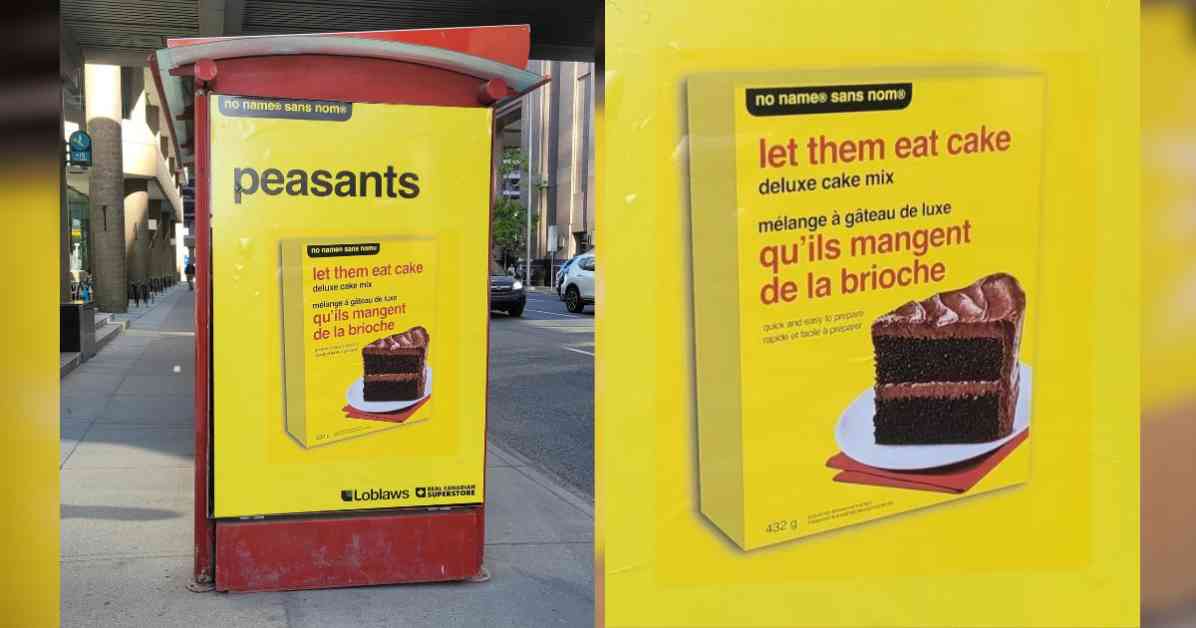A fake No Name advertisement recently appeared on a Calgary bus shelter, mocking Loblaw and its branding. This comes amid a national boycott of Loblaw and its affiliated stores, organized by a Reddit group called “Loblaws Is Out of Control.” The satirical ad features a chocolate cake mix labeled “Let them eat cake deluxe cake mix” with a suggested serving to “Eat the Rich.” This spoof is part of a trend known as “subvertising,” where corporate ads are parodied to make a statement.
Marketing expert Brad Davis explains that the No Name brand, launched by Loblaw in 1978, is meant to offer no-frills, affordable products to customers. By promoting their in-house brands like No Name, Loblaw can save on costs and invest in product quality. The ongoing boycott of Loblaw and its stores has put a spotlight on the company’s branding, making it a target for satirical criticism.
This isn’t the first time Loblaw has been spoofed. Toronto-based artist Christopher Lambe created merchandise that parodied the Loblaw brand, resulting in a legal challenge from the company. Despite the takedown of his initial merchandise, Lambe has continued to produce shirts that satirize large corporations like Shoppers Drug Mart.
The fake No Name ad shared on Reddit has garnered significant attention, with many Canadians praising its creativity and bold messaging. Some have even offered to support the anonymous artist behind the ad through crowdfunding. The use of “peasants” and the overall design of the ad have been commended for their effectiveness in mimicking a legitimate Loblaws advertisement.
Overall, the fake No Name ad is just one example of the growing trend of subversive advertising aimed at large corporations like Loblaw. As consumers become more conscious of corporate practices, they are using satire and parody to make a statement and challenge traditional branding strategies. This creative resistance highlights the power of grassroots movements in shaping consumer perceptions and holding companies accountable for their actions.
